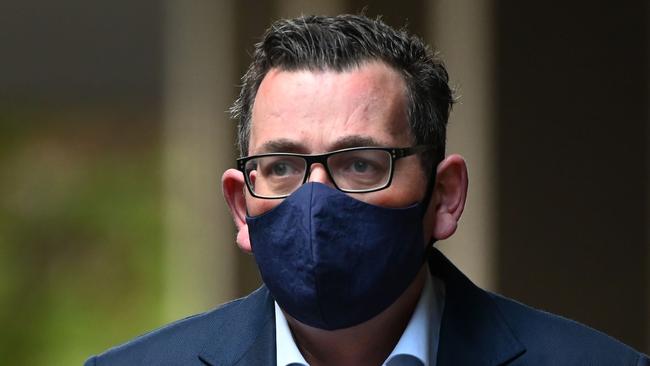Children ‘were punished to protect adults’
Victoria’s pandemic measures, which included 262 days in lockdown, playground closures and 5km travel limits, have been slammed by the Covid-19 inquiry.

Victoria’s pandemic measures, which included 262 days in lockdown, playground closures and 5km travel limits, have been slammed by the Covid-19 inquiry, with a leading clinician saying the heavy-handed directives “punished kids to protect adults” and “contravened decision making”.
Victorian opposition health spokeswoman Georgie Crozier seized on the report’s release on Tuesday, saying a royal commission was needed to understand the things governments did not get right.
“Melbourne was one of the longest locked down cities in the world and Victorians unnecessarily suffered due to curfews, playground closures and 5km-radius restrictions,” Ms Crozier said.
“There was little to no explanation or thought given to the massive impacts on the health and wellbeing of Victorians and the damage to the Victorian economy.
“We must never be in the situation again where the government was making such decisions, without proper transparency and accountability.”
She said 800 Victorians died due the failures with hotel quarantine.
The report blasted premiers for fuelling distrust and confusion, and while it delivered nine key recommendations, the nature of the inquiry, in that it was not a royal commission, absolved the states from having to take accountability and respond to the inquiry.
Premier Jacinta Allan’s office did not comment to The Australian.
Victoria faced the most severe pandemic response in the country, with former premier Daniel Andrews subjecting people to 262 days locked in their homes across five different lockdowns, forcing residents to remain within 5km of their homes and prohibiting children, who were already being schooled from home, from enjoying playgrounds.
The inquiry heard from stakeholders that a focus on the health impacts for the broader population at all levels of government meant that “the indirect impacts of response measures on children and young people were not prioritised”.
“We heard that pandemic response measures did not take a holistic view of health and wellbeing, and came at the expense of considering the unique needs of children and young people or their ‘education, emotional, cognitive and physical development’,” the report said.
“For example, state and territory governments introduced restrictions for settings ranging from school to playgrounds despite evidence of limited transmission risk.”
This sentiment was echoed by professor Margie Danchin, a consultant paediatrician at the Royal Children’s Hospital in Melbourne, who called young people and children the “forgotten people of Covid-19 pandemic decision-making”.
“It was clear from early on that children were at a lower risk of infection, of less severe disease … the closing of playgrounds, there’s little evidence it was an effective strategy,” Professor Danchin said.
“We punished kids to protect the adults.”
The Vaccine Uptake Group leader at the Murdoch Children’s Research Institute said there has been an escalation in anxiety, depression, self harm and a lack of developmental growth in young people.
“I’m seeing children all the time, still dealing with the ongoing learning, social and mental health impacts of home learning and school closures,” she said.
Professor Danchin said eating disorders and gender dysphoria also escalated during Covid-19.
The pediatrician said vaccine mandates had a place for frontline workers, but that broader mandates that affected general workers “became too far a reach”.
The review said that while the ACT had used a more educational health-driven approach to ensuring compliance with public health directions, Victoria had opted for an enforcement approach and cited the Melbourne tower lockdowns.
“Evidence suggests that relying on an enforcement approach does not necessarily provide the intended outcome and can have negative impacts,” it said. “For example, we heard that it eroded trust in the police and health authorities … reduced the likelihood of future compliant behaviour, and in some circumstances led to violence …”






To join the conversation, please log in. Don't have an account? Register
Join the conversation, you are commenting as Logout